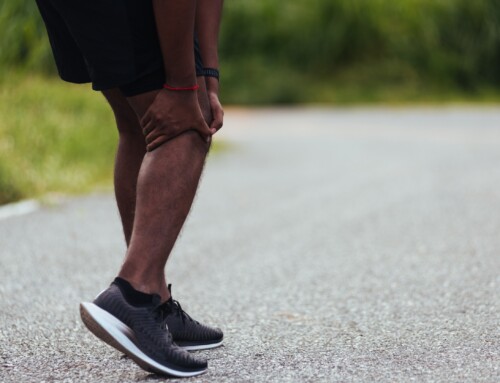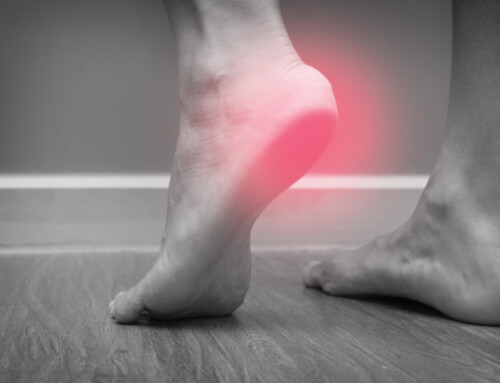Plantar Fasciitis in Runners
Carrin LaCoppola, SPT
Plantar fascia is a thick band of tissue that runs across the bottom of your feet and connects your heel to your toes. The plantar fascia aides in shock absorption, supporting the arch of the foot. If extra stresses or tension is placed on this fascia repetitively inflammation can occur, small tears can develop, or both. This inflammation causes pain where it attaches at the heel bone. This pain can be worse in the morning depending on the position you sleep, specifically if your toes are pointed down, causing shortening and tightness of this fascia. Long periods of standing, walking, and running can also cause increased pain. Plantar fasciitis will usually cause a sharp pain, typically at the beginning and possibly at the end of a run, and typically after exercise.
Risk Factors of Plantar Fasciitis:
- 40-60 years of age
- Tightness or weakness in the calf muscles
- Certain types of exercise: long distance running, jumping activates, and dance secondary to increased stress on the heel and surrounding fascia
- Foot Mechanics: both flat footed and high arches, and abnormal walking patterns
- Sudden weight gain or obesity: placing extra stress on the plantar fascia when standing and walking
- Occupations: where most of the day is spent walking or standing on hard surfaces
If you area a runner and have been experiencing pain in the middle of your arch or heel, have you recently increased your mileage? Have you change footwear, started wearing unsupportive running shoes, or running barefoot? If so, you may have developed plantar fasciitis. Running is a high impact activity that places increased stress on your foot and heel. If you flat feet or high arches, run on hard surfaces such as concrete or asphalt, have tight and/or weak calf musculature, or have limited ankle/foot mobility the plantar fascia can take on excessive loading to help support and stabilize the foot. This excessive stress and loading can turn into inflammation of the plantar fascia causing pain.
At Capital Area PT, we can help address these impairments in order to get you back to running. We have a wide array of treatments that can help you improve flexibility, strength, and stability around the ankle and calf muscles, and can also include a gait and running analysis as well as taping to help provide arch support.
Contact us at 518-289-5242 (Malta) or 518-289-5242 (Queensbury)
CapitalAreaPT.com
References:
- Treatment – Mayo Clinic. Mayo Clinic. 2017. Available at: http://www.mayoclinic.org/diseases-conditions/plantar-fasciitis/diagnosis-treatment/treatment/txc-20268820. Accessed April 8, 2017.
- WB K, C G, TJ C. Functional biomechanical deficits in running athletes with plantar fasciitis. Clinical Journal of Sport Medicine. 1991;1(3):213. doi:10.1097/00042752-199107000-00021.







